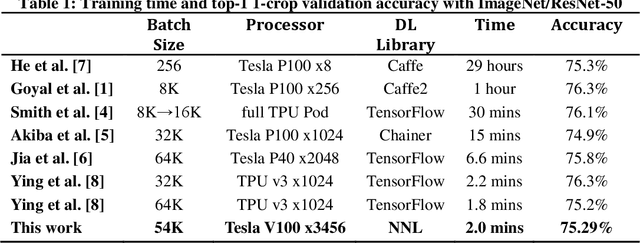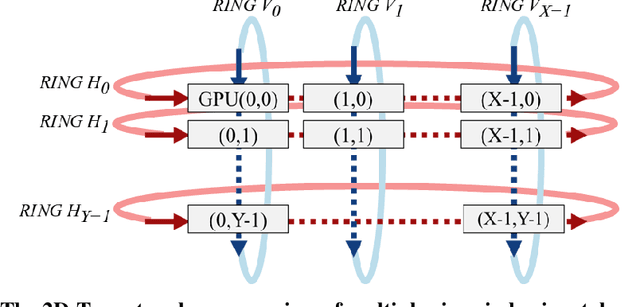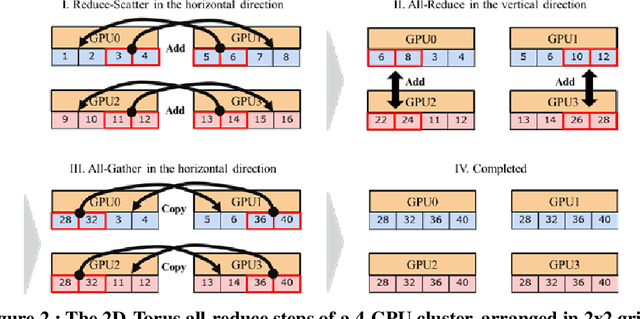Hiroaki Mikami
Preferred Elements, Inc.
PLaMo 2 Technical Report
Sep 05, 2025Abstract:In this report, we introduce PLaMo 2, a series of Japanese-focused large language models featuring a hybrid Samba-based architecture that transitions to full attention via continual pre-training to support 32K token contexts. Training leverages extensive synthetic corpora to overcome data scarcity, while computational efficiency is achieved through weight reuse and structured pruning. This efficient pruning methodology produces an 8B model that achieves performance comparable to our previous 100B model. Post-training further refines the models using a pipeline of supervised fine-tuning (SFT) and direct preference optimization (DPO), enhanced by synthetic Japanese instruction data and model merging techniques. Optimized for inference using vLLM and quantization with minimal accuracy loss, the PLaMo 2 models achieve state-of-the-art results on Japanese benchmarks, outperforming similarly-sized open models in instruction-following, language fluency, and Japanese-specific knowledge.
A Judge-free LLM Open-ended Generation Benchmark Based on the Distributional Hypothesis
Feb 13, 2025Abstract:Evaluating the open-ended text generation of large language models (LLMs) is challenging because of the lack of a clear ground truth and the high cost of human or LLM-based assessments. We propose a novel benchmark that evaluates LLMs using n-gram statistics and rules, without relying on human judgement or LLM-as-a-judge approaches. Using 50 question and reference answer sets, we introduce three new metrics based on n-grams and rules: Fluency, Truthfulness, and Helpfulness. Our benchmark strongly correlates with GPT-4o-based evaluations while requiring significantly fewer computational resources, demonstrating its effectiveness as a scalable alternative for assessing LLMs' open-ended generation capabilities.
PLaMo-100B: A Ground-Up Language Model Designed for Japanese Proficiency
Oct 10, 2024



Abstract:We introduce PLaMo-100B, a large-scale language model designed for Japanese proficiency. The model was trained from scratch using 2 trillion tokens, with architecture such as QK Normalization and Z-Loss to ensure training stability during the training process. Post-training techniques, including Supervised Fine-Tuning and Direct Preference Optimization, were applied to refine the model's performance. Benchmark evaluations suggest that PLaMo-100B performs well, particularly in Japanese-specific tasks, achieving results that are competitive with frontier models like GPT-4.
A Scaling Law for Synthetic-to-Real Transfer: A Measure of Pre-Training
Aug 25, 2021



Abstract:Synthetic-to-real transfer learning is a framework in which we pre-train models with synthetically generated images and ground-truth annotations for real tasks. Although synthetic images overcome the data scarcity issue, it remains unclear how the fine-tuning performance scales with pre-trained models, especially in terms of pre-training data size. In this study, we collect a number of empirical observations and uncover the secret. Through experiments, we observe a simple and general scaling law that consistently describes learning curves in various tasks, models, and complexities of synthesized pre-training data. Further, we develop a theory of transfer learning for a simplified scenario and confirm that the derived generalization bound is consistent with our empirical findings.
ImageNet/ResNet-50 Training in 224 Seconds
Nov 13, 2018



Abstract:Scaling the distributed deep learning to a massive GPU cluster level is challenging due to the instability of the large mini-batch training and the overhead of the gradient synchronization. We address the instability of the large mini-batch training with batch size control. We address the overhead of the gradient synchronization with 2D-Torus all-reduce. Specifically, 2D-Torus all-reduce arranges GPUs in a logical 2D grid and performs a series of collective operation in different orientations. These two techniques are implemented with Neural Network Libraries (NNL). We have successfully trained ImageNet/ResNet-50 in 224 seconds without significant accuracy loss on ABCI cluster.
 Add to Chrome
Add to Chrome Add to Firefox
Add to Firefox Add to Edge
Add to Edge